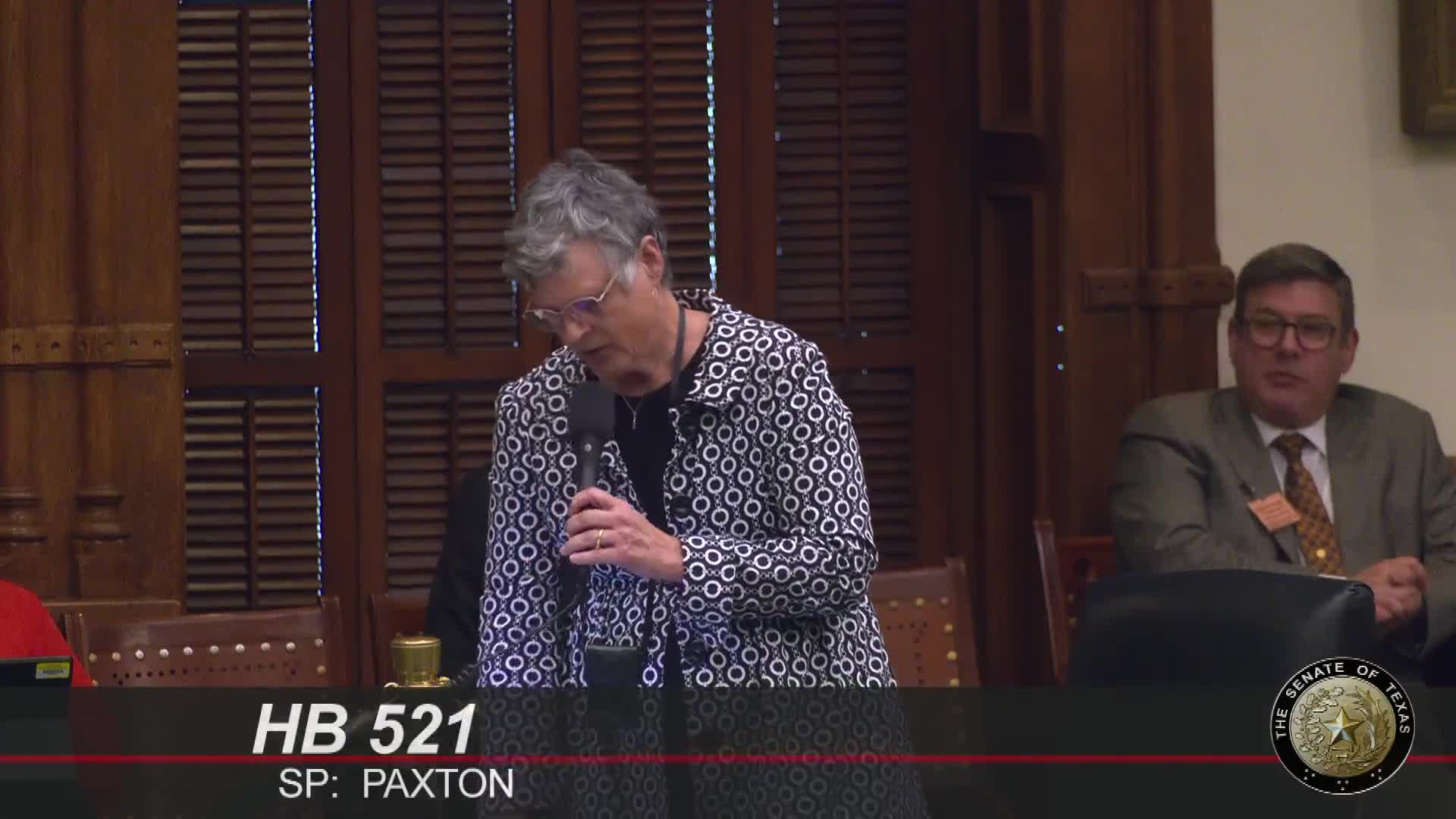Legislator warns against creating lists targeting public servants and disfavored groups
May 28, 2025 | Senate, Legislative, Texas
This article was created by AI summarizing key points discussed. AI makes mistakes, so for full details and context, please refer to the video of the full meeting. Please report any errors so we can fix them. Report an error »

In a tense atmosphere at the Texas Senate session on May 28, 2025, a heated discussion unfolded around the implications of proposed legislation that critics argue could lead to a troubling era of surveillance and discrimination. As lawmakers gathered, the focus shifted to a controversial bill that has sparked significant concern among various groups, particularly those advocating for voting rights and public service.
One senator passionately voiced their apprehension, likening the creation of lists targeting public servants, judges, and vendors to "preparing to shoot fish in a barrel." This metaphor underscored fears that the legislation would not merely address issues of election integrity but would instead foster an environment of mistrust and division. The senator highlighted the troubling nature of compiling lists of individuals who assist voters, judges exercising their discretion in bail decisions, and vendors selling books deemed "disfavored."
The senator's remarks painted a stark picture of a legislative agenda that prioritizes the identification of "disfavored groups" under the guise of combating what they termed the "scourges of communism." This rhetoric raised alarms about the potential consequences for public servants and community members who strive to uphold democratic values and support voter participation.
As the session progressed, the senator urged their colleagues to reconsider the implications of the bill, arguing that it was not about accommodating voters with disabilities, as proponents claimed, but rather about targeting those who help others exercise their rights. The call to action resonated with many in the chamber, reflecting a broader concern about the direction of legislative priorities in Texas.
The discussions during this session not only highlighted the contentious nature of the proposed legislation but also raised critical questions about the future of civic engagement and the protection of individual rights in the state. As lawmakers prepare to cast their votes, the outcome of this bill could have lasting repercussions on the fabric of Texas society, shaping the legacy of this legislative session for years to come.
One senator passionately voiced their apprehension, likening the creation of lists targeting public servants, judges, and vendors to "preparing to shoot fish in a barrel." This metaphor underscored fears that the legislation would not merely address issues of election integrity but would instead foster an environment of mistrust and division. The senator highlighted the troubling nature of compiling lists of individuals who assist voters, judges exercising their discretion in bail decisions, and vendors selling books deemed "disfavored."
The senator's remarks painted a stark picture of a legislative agenda that prioritizes the identification of "disfavored groups" under the guise of combating what they termed the "scourges of communism." This rhetoric raised alarms about the potential consequences for public servants and community members who strive to uphold democratic values and support voter participation.
As the session progressed, the senator urged their colleagues to reconsider the implications of the bill, arguing that it was not about accommodating voters with disabilities, as proponents claimed, but rather about targeting those who help others exercise their rights. The call to action resonated with many in the chamber, reflecting a broader concern about the direction of legislative priorities in Texas.
The discussions during this session not only highlighted the contentious nature of the proposed legislation but also raised critical questions about the future of civic engagement and the protection of individual rights in the state. As lawmakers prepare to cast their votes, the outcome of this bill could have lasting repercussions on the fabric of Texas society, shaping the legacy of this legislative session for years to come.
View full meeting
This article is based on a recent meeting—watch the full video and explore the complete transcript for deeper insights into the discussion.
View full meeting
